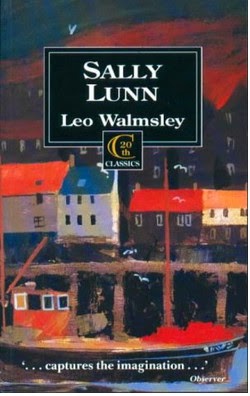Caedmon – First Christian Poet c648 – 670
Sourced from out of print 19thC works by George Markham Tweddell and William Hall Burnett.
In his address to the
Stokesley Mechanics Institute, Saturday 9th November 1850,
George Markham Tweddell gave a talk on
Local Writers (those from the Cleveland area, including down as far as Whitby) and one of the writers mentioned was
Caedmon – here’s what he had to say –

“
The eastern extremity of this district, Sir, produced one of the most celebrated Anglo Saxon poets in person of a poor herdsman, named Cedmon, who afterwards became one of the monks of Whitby. Near twelve hundred years have swept over the earth since his body mouldered into the dust ; but his writings have survived the dark and troubled centuries, and were printed, only nineteen years ago in London. There is much in the personal history of Cedmon, when stripped of the superstitious legends with which tradition has invested it, to remind us of the Scottish plough boy, Robert Burns. His writings, however, bear much greater resemblance to those of John Milton ; so much so, indeed, that I should unhesitatingly declare him the Milton on the Anglo Saxon period era. One will find specimens of his poems in Sharon Turner’s History of the Anglo Saxons, in Dr Young’s History of Whitby, and in that popular and excellent work, Chambers’s Cyclopeadia of English Literature.”
Cedmon
Poem by George Markham Tweddell c 1872
The old Brigantes from our bosky brooks
And heather-covered hills far were driven;
The Roman legions had been call’d away
From Britain’s isle, to cross their swords with men
Who, rear’d in savage wilds, had over-run
Fair Italy, and sought to rule the world ;
The hardy Saxons, from Teutonic woods,
Had made our shores their own, and fixed their feet
So firmly on the sod, that nought could shake
Their footsteps from our soil; when he arose,
Cedmon, the humble herdsman of the swine
That fed on mast of Cleveland’s oaks and beeches,
Or tended beeves that then were wont to graze
In Cleveland’s pastures. He heard old ocean
Dash his wild waves in fury at his feet
Of Cleveland’s Iron cliffs, and saw them foam
As if with rage,—anon lie sleeping on
Our silver sands, their motion as serene
As maiden’s breasts, which merely heave with breathing;
He saw the morning sun rise in its beauty,
Shine in its glory, and in splendour set;
The moon and stars for him adorn’d the night,
As they had done for Homer; flowers came forth
In all their rustic beauty at his feet;
And birds and bees made music for his ears;
And he became—a poet!
Peter Proletarius (aka George Markham Tweddell )
It wasn’t until 1872 that Tweddell wrote the first of a proposed series called The Bards and Authors of Cleveland and South Durham of which only volume 1 appeared. The first chapter is on Caedmon – here –
in pdf form (Click tthe arrow to enlarge and read or download free.
Later in 1886, William Hall Burnett, (Editor of Middlesbrough Daily Exchange and influenced by the earlier work of George Markham Tweddell, included a chapter on Caedmon in his own book Old Cleveland – Local Writers and Local Worthies with his own take on Caedmon – again reproduced here in pdf form..
Another local text on Caedmon from Gideon’s Smales book Whitby Authors and their Publications.
1867






